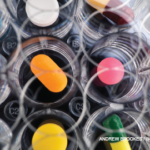- Avoid the use of tofacitinib during an active, serious infection, including localized infections.
- Use with caution in patients who may be at increased risk for gastrointestinal perforations.
- Monitor laboratory parameters: lymphocytes, neutrophils, hemoglobin, liver enzymes and lipids.
- Avoid the use of live vaccines with tofacitinib.
Dosage & Administration
Tofacitinib is available for oral administration. The dose of Xeljanz is 5 mg twice daily and the dose of Xeljanz XR is 11 mg once daily. It may be used as monotherapy or in combination with MTX or other nonbiologic DMARDs. Do not initiate the drug if the absolute lymphocyte count (ALC) is <500 cells/mm3, absolute neutrophil count (ANC) is <1,000 cells/mm3 or hemoglobin is <9 g/dL.
Commentary
Tofacitinib is the first drug of a new class of treatments called JAK inhibitors approved for the treatment of RA. The safety and efficacy of the drug were evaluated in seven clinical trials in adult patients with moderate to severe, active RA. In all of the trials, patients treated with tofacitinib saw a greater improvement in clinical response and physical functioning than patients treated with placebo. The most common adverse reactions (≥2%) were upper respiratory tract infection, nasopharyngitis, diarrhea and headache.
Baricitinib (Olumiant):25 tablets
Drug class: JAK inhibitor, DMARD
Boxed warning: Refer to *ISI (p. 14) and
- Lymphoma and other malignancies have been observed in baricitinib-treated patients.
- Thromboses, including deep venous thrombosis, pulmonary embolism and arterial thrombosis, some fatal, have occurred in patients treated with baricitinib. Venous thromboses have been reported more frequently in patients treated with 4 mg baricitnib.26
Warnings & Precautions
- Avoid the use of baricitinib during an active serious infection, including localized infections.
- Use with caution in patients who may be at increased risk for gastrointestinal perforations.
- Monitor laboratory parameters: lymphocytes, neutrophils, hemoglobin, liver enzymes and lipids, due to potential changes.
- Use with caution in patients who may be at increased risk for thrombosis.
- Avoid the use of live vaccines with baricitinib.
Dosage & Administration
Baricitinib is available for oral administration. The recommended dose
of baricitinib is 2 mg once daily. It may be used as monotherapy or in combination with MTX or other DMARDs. Do not initiate the drug if the ALC is <500 cells/mm3, ANC is <1,000 cells/mm3 or the hemoglobin is <8 g/dL.
Commentary
The FDA approved baricitinib based on the results of a clinical trial that included 527 patients who had an inadequate response or were intolerant to one or more TNF inhibitors. At 12 weeks, the researchers found 49% of patients treated with baricitinib achieved ACR20 response rates and improvement in all individual ACR20 component scores compared with 27% of patients in the placebo group. Patients in the baricitinib group showed significant improvements in physical function based on the Health Assessment Questionnaire Disability Index, with an average score of 1.71 prior to treatment and 1.31 at Week 12, compared with patients in the placebo group, who had an average score of 1.78 prior to treatment and 1.59 at Week 12. The most common adverse reactions (≥1) were upper respiratory tract infections, nausea, herpes simplex and herpes zoster.
Rituximab (Rituxan):27 infusion
Drug class: anti-CD20
Boxed Warning



